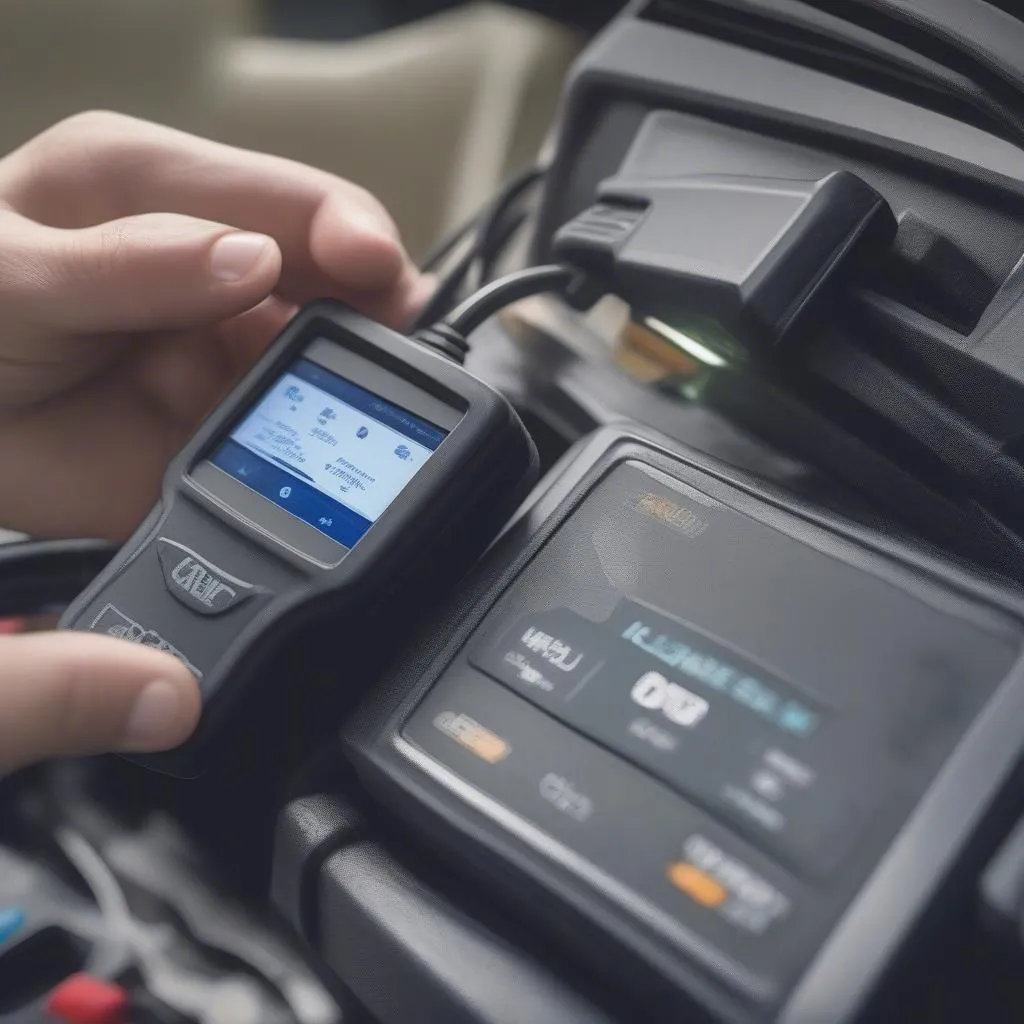Imagine this: you’re driving down the Pacific Coast Highway, California sunshine warming your face, when suddenly, your 2013 VW Jetta throws you a curveball – a “check engine” light. Before you let that little light steal your joyride, wouldn’t it be great to understand what it’s trying to tell you? That’s where your trusty OBD-II scanner comes in.
Understanding the Importance of OBD-II Scanners
From a mechanic’s perspective, an OBD-II scanner is like a window into your car’s soul (or at least, its engine). It allows you to tap into the car’s computer, read those cryptic error codes, and get a better understanding of what’s going on under the hood.
Technically speaking, the OBD-II port in your 2013 Jetta is a standardized system that lets you communicate with the car’s Engine Control Unit (ECU). This means whether you’re a seasoned mechanic on the streets of New York City or a car enthusiast tinkering in their garage in rural Montana, the process is relatively universal.
Now, you might be thinking, “This sounds expensive!”. While professional-grade scanners used by dealerships can cost a pretty penny, there are plenty of affordable options available for the average car owner. Investing in a good OBD-II scanner can save you a lot of money in the long run by helping you diagnose issues early and potentially avoid unnecessary trips to the mechanic.
Connecting Your OBD-II Scanner: Step-by-Step
Alright, let’s get down to business. Connecting your OBD-II scanner to your 2013 VW Jetta is as easy as pie. Here’s a quick breakdown:
- Locate the OBD-II Port: In most VW Jettas, you’ll find the port under the dashboard, on the driver’s side. It’s usually a trapezoidal connector with 16 pins.
- Turn the Ignition On: Don’t start the engine, just turn the key to the “on” position. This powers up the car’s computer and allows the scanner to connect.
- Plug in the Scanner: Connect your OBD-II scanner to the port. You should hear a click when it’s securely in place.
- Turn on the Scanner: Switch on your OBD-II scanner. Some scanners might power up automatically when connected to the car.
- Follow the On-Screen Instructions: Most scanners will guide you through the process of reading and clearing codes. You might need to input some basic information about your vehicle, such as the year, make, and model.
Pro Tip: If you’re having trouble connecting, double-check that your scanner is compatible with your VW Jetta’s model year.
Common Questions About OBD-II Scanners and Your VW Jetta:
- Can I use any OBD-II scanner on my 2013 Jetta?
- While most standard OBD-II scanners will work, it’s recommended to use a scanner that’s specifically compatible with VW vehicles for more accurate readings and advanced functionality.
- What do the error codes mean?
- Each code corresponds to a specific issue with your car. Your scanner’s manual or a quick online search will help you decipher these codes.
- Can I clear the codes myself?
- Yes, most scanners allow you to clear codes. However, keep in mind that this doesn’t actually fix the underlying problem.
- What if the check engine light comes back on?
- This usually means the issue hasn’t been resolved. In such cases, it’s best to consult a qualified mechanic.
 OBD-II Scanner Connected
OBD-II Scanner Connected
Dealing with Persistent Car Troubles?
Remember that your OBD-II scanner is a diagnostic tool, not a magic wand. While it can provide valuable insights into your car’s health, it’s essential to consult a trusted mechanic for any persistent issues or complex repairs.
Need help deciphering those error codes or choosing the right scanner? Don’t hesitate to reach out to our team of automotive experts via Whatsapp at +84767531508. We’re here to help you keep your 2013 VW Jetta running smoothly, no matter where the road takes you.
 Mechanic Diagnosing a VW Jetta
Mechanic Diagnosing a VW Jetta
Related Articles:
- Top 5 OBD-II Scanners for VW Vehicles
- Understanding Common VW Jetta Error Codes
- DIY Car Maintenance Tips for Beginners
Have questions about your car’s diagnostics? Share your thoughts and experiences in the comments below!